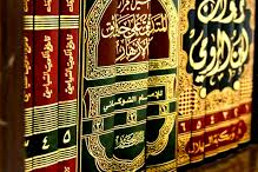 The purpose for acquiring Islamic knowledge
The purpose for acquiring Islamic knowledge
The purpose for acquiring Islamic knowledge is in order for one to find the correct path to reach Allah Ta‘ala. Knowledge in itself is not the goal; rather it is a medium that leads one to the goal. The goal is to practise the laws of Shari’ah in accordance to the manner prescribed by Allah Ta‘ala and His Rasul (sallallahu ‘alaihi wasallam) and hence earn the eternal pleasure of Allah Ta‘ala. If the knowledge that one acquires does not lead one to the goal, then it is not worthy of being called ‘Islamic knowledge’. Perhaps it could be called ‘information’. Hence, the crucial question is, “What is Islamic knowledge and how should one go about acquiring this knowledge?” In order for the knowledge which one acquires to be acceptable in the sight of Allah Ta‘ala and sanctioned by Shari’ah, it is necessary that certain aspects be adhered to:
Authenticity and Reliability
The first aspect is authenticity and reliability. Extreme caution should be exercised in sourcing Deeni knowledge. One should ensure that one refers to reliable, qualified Ulama in the pursuit of seeking Islamic knowledge. Similarly, the material one exposes oneself to in the course of seeking education should be acquired from authentic and reliable sources.
If one acquires his knowledge from unauthentic sources, or unreliable personalities, or from authentic sources but adopts a selfstudy approach, then in all these cases one is bound to reach the incorrect conclusion. The understanding of Deen which one will obtain will undoubtedly fail to conform to the pure and pristine brand of Islam. Innovations, extremism and distortions will be noticed in various aspects of such a person’s Deen. This will primarily be on account of him not sourcing his knowledge from the authentic, reliable sources which have been approved by Rasulullah (sallallahu ‘alaihi wasallam). The disastrous outcome of acquiring knowledge through such channels is that Islam will be reduced to customs and rituals which will change with the fashions and norms of the time. The illustrious Taabi’ee, Muhammed bin Seereen (rahimahullah), has said: Certainly, this knowledge that you are acquiring is your Deen, hence you should ensure that you acquire your Deen from authentic and reliable people. (Shamaail Tirmizi #415)
The Divine system of Allah Ta‘ala is that Deen will have to be learnt and acquired from those who have been blessed with Deen. Allah Ta‘ala says, “Ask the people of knowledge if you do not know”. (Surah 21:7)
In his Mubaarak Hadith, Rasulullah (sallallahu ‘alaihi wasallam) has commanded the ummah to refer to the Ulama and acquire the knowledge of Deen from them. Hazrat Mu’aawiyah (radhiyallahu ‘anhu) reports that he heard Rasulullah (sallallahu ‘alaihi wasallam) saying:
O people! Ilm (the knowledge of Deen) is only that which is acquired through ta’allum (studying under the guidance of the rightly guided Ulama) and Fiqh (the true understanding of Deen) is only that which is acquired through tafaqquh (studying under the guidance of a person who is blessed with Fiqh). Whoever Allah Ta‘ala wishes good for, He blesses him with the true understanding of Deen, and indeed only those of His servant truly fear Allah Ta‘ala, who possess (the) knowledge (of Deen). (Mu’jamul Kabeer #929)
Adopting Permissible Means
The second aspect is the means through which the knowledge of Deen is acquired. It is incumbent that one adopts permissible means to acquire Islamic knowledge. The method one adopts should conform to the method adopted during the Mubaarak era of Rasulullah (sallallahu ‘alaihi wasallam), the Sahaabah (radhiyallahu ‘anhum) and the Khairul Quroon (era of the Taabi’een and TabeTaabi’een rahimahumullah). If one adopts a haraam means to acquire Islamic knowledge, he will earn the displeasure of Allah Ta‘ala and such information will be bereft of the true noor of Deen. Thus, such knowledge will not lead one to the pleasure of Allah Ta‘ala and enable one to uphold the pillars of Islam.
Adopting the Sunnah Approach
The third aspect is adopting the Sunnah approach when acquiring the knowledge of Deen. The Sunnah approach is to adopt the highest level of respect and honour for everything related to Deen (viz. the Qur’aan, the Ahaadith, the Ambiyaa (‘alaihimus salaam), the Sahaabah (radhiyallahu ‘anhum), the Ulama, the symbols of Islam, etc.) as well as conforming to all the aadaab (etiquettes) of Deen.
When Islamic knowledge is acquired in this manner, by adhering to the way shown to us by Rasulullah (sallallahu ‘alaihi wasallam) and adopting the etiquettes of Islam, one will witness the true spirit of Deen being revived in the lives of the believers. The books of Hadith are replete with many glaring examples which illustrate the Sunnah method adopted by the Sahaabah (radhiyallahu ‘anhum) and the Taabi’een (rahimahumullah) in the pursuit of acquiring the knowledge of Deen.
When the knowledge of Deen is in reality the knowledge of Nubuwwat, and those who tread the path of acquiring it are honoured with the title of “The heirs of the Ambiyaa”, one could well imagine the great need for one to adopt the outer as well as inner qualities of the Ambiyaa (‘alaihimus salaam). In other words, one should not confine knowledge to words or actions; instead one should endeavour to cultivate the very spirit and noor of the knowledge in all respects. Acquiring such knowledge under the guidance of the true men of Allah Ta‘ala, who acquired this knowledge from their seniors, with an unbroken chain linking up to Rasulullah (sallallahu ‘alaihi wasallam), creates an indelible impression on the hearts of people, thereby sparking the true love within them to emulate the Mubaarak Sunnah of Rasulullah (sallallahu ‘alaihi wasallam) in all facets of life.
Acquiring Deeni Knowledge through TV, Youtube, etc.?
After closely examining the issue of acquiring Islamic knowledge through watching YouTube, “Islamic TV programs”, etc., one will realize that these means of acquiring Islamic knowledge do not conform to the abovementioned Islamic method of acquiring Islamic knowledge.
The television is one of the main tools of Shaitaan in misleading man. The one who views the television is not committing one sin; rather he is perpetrating a conglomeration of sins and a host of evil deeds. Some of the wrongs associated with the television are: 1) viewing pictures of animate objects, 2) viewing nonmahram women, 3) listening to music, 4) viewing obscene scenes, 5) admiring things of other religions and cultures, etc. All these things have been severely condemned and prohibited in Shari’ah. Involvement in these activities destroys the very fabric of Islamic culture and causes the degeneration of hayaa and shame in the ummah.
In order for one to propagate Islam via the television, one is required to appear on the television. This demands that one allow himself to be videoed, whereas this has been prohibited by Allah Ta‘ala and Rasulullah (sallallahu ‘alaihi wasallam) . All the four mazhabs are unanimous upon the fact that picture making of animate objects is forbidden in Islam. Rasulullah (sallallahu ‘alaihi wasallam) said: “Those involved in picture making will be subjected to the worst forms of punishment on the Day of Qiyaamah.” (Bukhari 2/880)
Even if one argues that the Islamic channel does not contain music and obscenities, it still is an undeniable fact that at times women will be viewing non-mahram men and men will be viewing non-mahram women on screen. This contravenes the law of purdah between non-mahram males and females which is the command of the Qur’aan and Hadith. This also leads to lustful glances and incites illicit feelings of attraction in the hearts of men and women, thereby leading to fitnah.
Apart from this, many people feel that they will only view Islamic programs on the television. However the chances are very slim that they will not occasionally be tempted to switch to another program. Even if they do not switch to other programs, it is possible that their children and family will watch other programs containing music, obscenities, etc. Hence, this method of propagating Islam and acquiring the knowledge of Deen directly opposes the command of Allah Ta‘ala and His Rasul (sallallahu ‘alaihi wasallam).
Islam does not require Muslims to use haraam means and kuffaar methods to spread the message of Islam. Islam will only spread through the mubaarak way of Rasulullah (sallallahu ‘alaihi wasallam) Hazrat Umar (radhiyallahu ‘anhu) mentioned, “We were the most disgraced of people. Allah Ta‘ala then gave us honour through Islam. If we ever seek honour in something besides that through which Allah Ta‘ala has honoured us (Islam), Allah Ta‘ala will disgrace us.”
Utilizing impermissible means to propagate Deen
Faqeehul Ummah, Mufti Mahmood Hasan Gangohi (rahimahullah), the Mufti A’zam of India, was once asked about participating in Deeni programs wherein certain laws of Shari’ah are violated, with the intention of gradually winning people over to Deen and rectifying the wrongs at a later time. He explained: “…Listen attentively, there are two aspects that are required in Deen: 1) Hifaazatud Deen (making an effort to preserve Deen), 2) Ishaa’atud Deen (making an effort to propagate Deen).
Both these aspects are of great significance and importance in Deen. However, from the two aspects, Hifaazatud Deen (making an effort to preserve Deen) will be given preference over Ishaa’atud Deen (making an effort to propagate Deen). Therefore, propagating Deen through an impermissible means, which leads to the destruction of Deen is actually against Deen and certainly not in keeping to the demands of intelligence. (Fataawa Mahmoodiyah 5/229)
An Important Principle of Deen
Shortly before his demise, Allaamah Yusuf Binnori (rahimahullah) strongly opposed the suggestion of appearing on TV. Hazrat Mufti Taqi Usmaani Saheb (Hafizahullah) explains:
During the last meeting of the Pakistan Islamic Council that Allaamah Yusuf Binnori (rahimahullah) attended, Hazrat was asked to appear on television. He declined. Later Hazrat was asked whether films could be used for the propagation of Deen, provided that all immorality and factors that destroy character are removed. Upon this, Hazrat Moulana (rahimahullah) expounded on a principle of Deen, the gist of which is:
“I wish to share with you a principle issue. We have not been obligated by Allah Ta‘ala to use every possible means, whether permissible or impermissible, for the tableegh of Deen. Instead, we are required to use all our energies and resources to propagate Deen only using permissible means and methods. Together with the injunction of tableegh, Islam has also laid down guidelines and principles for tableegh. We are thus obligated to conduct our tableegh within this framework.
If we are successful in our efforts after following the guidelines and principles, then indeed, we have achieved our ultimate goal and objective. If our efforts were unfruitful, but we had adopted the permissible methods and means, we will not be compelled to further our tableegh by using every possible and available means, be it permissible or impermissible.
If even one person is blessed with guidance after using the permissible means, then undoubtedly our tableegh was successful. However, if on the other hand, scores and droves of people embrace Islam on account of us adopting impermissible methods and means, then this holds no value in the sight of Allah Ta‘ala. How can success ever be achieved when we have transgressed the bounds of Shari‘ah? Rather than it being the tableegh of Deen, it would be the tableegh of something else.
Photography inherently contradicts the injunctions of Islam. Therefore, we will not be compelled to utilise it as a tool for tableegh. If a person is prepared to accept Islam through our invitation via permissible methods and means, then we will definitely be grateful and pleased. However, for those who are not prepared to do so and wish to accept our invitation only by means of the television, then we regret that we will have to be excused.
If this stance is not adopted today, then the television will be a tool for tableegh now, but in time to come, behijaab (unveiled) women would be used for this purpose, and an effort will be made to use immoral gatherings of music and dancing, etc, to invite people to Deen. In this way, in the name of tableegh we will be guilty of gradually violating the laws of Islam.” (Nuqooshe Raftagaa, Pg. 104)
The Fitnah of the Time
The fitnah of television and photography is undoubtedly the fitnah of the time. Our Akaabir, the likes of Hazrat Anwar Shah Kashmeeri, Allaamah Binnori, Mufti Shafee’ Saheb (rahimahumullah) and many others have all strongly condemned the major sin of photography. They did not consider digital photography to be any different from the photography prohibited in the Mubaarak Ahaadith. Hence, till the end of their lives, they continued to vehemently prohibit people from all types of photography. Allaamah Binnori (rahimahullah) has mentioned, “The Ahaadith which contain severe warnings for those involved in picture making apply to every picture of animate objects (whether digital or not). Furthermore, the entire ummah is unanimous that pictures of all animate objects are haraam. However, the surge of westernization has begun to make this haraam action, which was previously accepted by all as being haraam, seem to be permissible.” (Basaair wa Ibar Pg. 323)
Hazrat Anwar Shah Kashmeeri (rahimahullah), who was known to be a walking library and a rock of steadfastness in following and preaching the Sunnah, strove till the end of his life to save people from the television and prevent them from getting involved in photography. When he perceived that this will become a future fitnah, he instructed his student, Hazrat Mufti Shafee’ Saheb (rahimahullah), to prepare a kitaab explaining the proofs which establish that television and digital photography are haraam.
Hazrat Mufti Shafee’ Saheb (rahimahullah), the grand Mufti of Pakistan, throughout his life, never spoke out against any mukhtalaf fee mas’alah (i.e. any mas’alah wherein there is a difference of opinion which has a valid basis in Shari’ah). However, on account of television and photography being accepted as impermissible according to all the four mazhabs, he spoke out against it and even prepared an entire book proving its impermissibility.
We all agree to the greatness of these personalities in ‘ilm and ‘amal, and that they were far greater than the Ulama of this era in all respects. Their research in Deen was of a higher level and their understanding of the Sunnah was far superior to any Aalim of this age. Hence, if they unanimously agreed on this being impermissible and did not change their views and retract till the end of their lives, then it is safer to follow them in Deen. For one to claim, without shar’ee proof, that these personalities changed their views in this mas’alah is totally wrong and deceiving, and tantamount to falsely attributing to them that which is not true.
Method of Education in The Era of Rasulullah (sallallahu ‘alaihi wasallam)
In the era of the Sahaabah (radhiyallahu ‘anhum), the method of education was that people acquired the knowledge of Deen (the Qur’aan and Hadith) under the guidance of those who were learned in the various branches of Deen. Despite the Sahaabah (radhiyallahu ‘anhum) being fully conversant in the Arabic language, they never adopted the approach of selfstudy in matters of Deen and did not refer directly to the Qur’aan and Hadith. They were well aware of the grave warnings that have been sounded by Rasulullah (sallallahu ‘alaihi wasallam) in his Mubaarak Ahaadith for the one who treads on such a perilous path of selfstudy, as well as the serious consequences of adopting such an approach. In one Hadith, Rasulullah (sallallahu ‘alaihi wasallam) is reported to have said:
“The one who fabricates or concocts something in Deen and incorrectly attributes it to me, he has prepared his abode in the fire of Jahannum.” (Saheeh Muslim #3)
Generally people studying the Qur’aan and Hadith on their own reach incorrect conclusions and misinterpret the Qur’aan and Hadith. The outcome of this is that they present the wrong message of Deen to the ummah and then attribute this wrong conclusion to Allah Ta‘ala and His Rasul (sallallahu ‘alaihi wasallam). Hence there is great fear of them entering under the purview of the abovementioned warning of Rasulullah (sallallahu ‘alaihi wasallam).
Apart from this, Rasulullah (sallallahu ‘alaihi wasallam) foretold that a time will come before Qiyaamah where the true spirit of Deen which existed in the beginning of Islam will no longer remain. The caution that was exercised by the Sahaabah (radhiyallahu ‘anhum) in Deeni matters will no longer be seen. People will refer directly to the Qur’aan and Hadith in sourcing out solutions for their Deeni problems. Nabi (sallallahu ‘alaihi wasallam) said:
“I particularly fear three problems in my Ummah. Firstly, due to the abundance of wealth and possessions, jealousy for one another will spread among them. Secondly, they will begin to freely discuss the Holy Qur’aan (without referring to the Ulama and the learned), whereas many meanings in the Qur’aan are such that they cannot be understood by anyone except Allah Ta‘ala . (In regard to such verses), the wellversed scholars of the Book say: “We fully believe in it, and that it has come from Allah Ta‘ala.” Thirdly, the religious scholars will be neglected and ignored and people will not see the need to refer to them (i.e. people will adopt the approach of selfstudy in Deen and refer to the Qur’aan and Hadith directly).” (At-Targeeb Wat-Tarheeb #176)
Referring Directly to The Qur’aan and Hadith
Once a person came to Hadhrat Umar (radhiyallahu ‘anhu) for some work. During the conversation, Hadhrat Umar (radhiyallahu ‘anhu) asked him regarding the condition of the people in the land from which he had come. The person replied: “O Ameerul Mu’mineen, there is a great awakening among the people and people are learning the Qur’aan and referring to the Qur’aan directly in Deeni matters (i.e. without the guidance of the Ulama).” Hadhrat Ibnu Abbaas (radhiyallahu ‘anhuma) was present in this gathering and upon hearing the statement of this person, he said: “I take an oath by Allah Ta‘ala, I do not like that people begin learning and studying the Qur’aan by themselves.” Upon this, Hadhrat Umar (radhiyallahu ‘anhu) immediately reprimanded him and disapproved of the objection which he raised against the approach of the people.
After being reprimanded by Hadhrat Umar (radhiyallahu ‘anhu), Hadhrat Ibnu Abbaas (radhiyallahu ‘anhuma) says: “I then went home extremely grieved and worried and said to myself: It seems that on account of my statement, I have fallen in the sight of Hadhrat Umar (radhiyallahu ‘anhu).” He further said: “After returning home, I rested on my bed, until the womenfolk of the house became concerned regarding my condition. It was not due to any ailment that I had fallen ill, but rather due to what had occurred in the conversation with Hadhrat Umar (radhiyallahu ‘anhu). While I was in that condition, a person came to me and said: ‘The Ameerul Mu’mineen has sent me to call you.’ I then came out of my home and found Hadhrat Umar (radhiyallahu ‘anhu) there, waiting for me. He took hold of my hand until we were in seclusion. He then asked: ‘What was it that you disapproved regarding the statement made by that man earlier?’ I replied: ‘O Ameerul Mu’mineen, if I have erred, then I seek the forgiveness of Allah Ta‘ala and repent, and I am prepared to correct my stance according to what you advise me.’ Hadhrat Umar (radhiyallahu ‘anhu) said: ‘No, rather tell me the reason for your disapproval.’ I replied: ‘O Ameerul Mu’mineen, the reason for my disapproval of people referring to the Qur’aan directly is that they will begin to reach their own conclusions and formulate their own opinions in Deen.
The outcome of this will be that each person will have his own version of Deen and confine the truth to what he feels. This will then lead to differences and dissension breaking out in the ranks of the Muslims (based on ignorance). The dissension will then lead to arguments and disputes and ultimately Muslims will be at logger heads with each other.’” Hadhrat Umar (radhiyallahu ‘anhu) was greatly pleased with what Hadhrat Ibnu Abbaas (radhiyallahu ‘anhuma) said and told him that he also felt the same way, though he had not expressed this to anyone till the time that Hadhrat Ibnu Abbaas (radhiyallahu ‘anhuma) had mentioned it to him. (Musannaf Abdur Razzaaq #20368)
From this incident we conclude that the Sunnah method upheld by the illustrious Sahaabah (radhiyallahu ‘anhu) in regard to acquiring the knowledge of Deen is for one to learn Deen under the guidance of the rightly guided Ulama and not to independently refer to the Qur’aan and Hadith.
Influence of TV by Hadhrat Moulana Yunus Patel (rahimahullah)
One of the many Sunnats of the Ambiyaa (‘alaihimus salaam) is that of hayaa – shame and modesty: a quality which is sorely missing in the lives of the majority of Muslims today and which should otherwise be an outstanding characteristic and feature of all Muslims, whether married or unmarried.
Television is such an evil that if our society only understood its reality, then they would find no excuse to watch. Its spiritual harm is that it takes away the hayaa and shame of our men, women and children.
The content of most television programmes is nothing but immodesty and indecency, which invites nothing but immodesty and indecency – into our homes, into our lives and the lives of our children. However, this truth and reality seems to just pass over the understanding of even those Muslims who have some link with Deen. Many are regular with Salaah, they are seen in the Musjid, they are wearing the garb of the pious and yet they will be the ones to present flimsy and feeble excuses to view television programmes.
Let us consider this situation of sin from the following view – which Alhamdulillah, has been a means of many getting rid of the television.
- If a person has to knock on your door and tell you: ‘I would like to use your lounge to commit adultery.’
- Or a group of some friends have to request you: ‘We would like to use your home to gamble and enjoy our liquor.’
- Or a group of youngsters have to tell you: ‘We have chosen your home as a venue for our partying, dancing, drugtaking and fornicating.’
- Or a Christian family has to request you: ‘We would like to use your home as a venue for our church ceremony, the marriage of our daughter as well as the baptism of our grandchild. We have already obtained the consent of one of our priests.’
- Or some idol-worshippers have to suggest: ‘We would like to carry out some of our religious rites in your home. We would like to bring our idols also. You are more than welcome to observe or participate in our rites.’
Many Muslims, on hearing such requests, will get very angry; will express disgust – if not swear and curse such suggestions.
However, these very same Muslims who will even resort to swearing and cursing such proposals, invite into their homes all of the above by switching of the television on, by hiring English and Hindi films and DVDs and downloading porn and other films from the internet. There is so much of adultery, partying and other filth that we seem to just welcome into our homes – least realizing the consequences.
Just to give you one example, and this is but the tip of the iceberg – and it is said with the intention of removing the blindfold that most parents wear: A father of four children mentioned to me that he had got rid of his television and he thereafter explained why. He said that late one night he heard strange noises from his children’s room. On opening the door of their room, he found their television switched on. […This is our concept of modesty: parents must have their own television, to view all kinds of filthy programmes in their privacy, and children must have their own television to view all kinds of indecency in their privacy (Na’oozu Billah).]
The father mentioned that there were dirty and obscene scenes of naked people on the television screen. He mentioned that it was filthy and that it shocked him; but what had him even more shaken was that his children were all undressed, engaging in the same kind of indecent acts. They were imitating the pornography they were viewing. He said himself, that until then he had not considered the harm of television. It took this kind of incident to wake him up.…This is just one example of so many. Do we wish to face something similar?
…Do we care to even know what our sons and daughters are doing in the secrecy of their rooms? The fact that many demand that no one ‘invade’ their space and privacy to the extent of having ‘No Entry’ signs on their doors, should have parents a little more than worried… especially if they are viewing television and are surfing the net or have free access with cell phones.
Many have written, that after watching certain films or programmes, the desire came strongly into their hearts to take drugs, drink liquor, murder their parents, indulge in homosexuality, engage in adulterous relationships, commit suicide, rape, and so much else – and many of them do so.
Moreover, with sins like television and evil, lustful glancing, Allah Ta‘ala removes the love between husband and wife and even ones children become disobedient.
There are many husbands who entertain thoughts of and fantasize of other women when with their wives. They will obviously do so when they are watching so many actresses and television presenters all the time. Many wives are guilty of the same infidelity due to having seen or socialized with ghairmahaarim. Many women are so infatuated and obsessed with some soccer player or cricket player that they become dissatisfied with their husbands, and spend their time fantasizing. Had the person not viewed all those ghairmahaarim on the television screen and computer screen, and had lowered his gaze in real life situations, then he would not have desired that which he cannot have, and there would not have been dissatisfaction with his (or her) spouse.
Moreover we complain: There is no barkat in our homes; there is no barkat in our wealth; there is no barkat in our time. Our children are rebellious. The husband is having an extramarital relationship. The daughter has accepted Christianity. The son is on drugs … and the list of complaints does not end.
Then who is to blame except the one who brought all of this haraam into the home by purchasing the television and exposing the family to so much of sin.
…Great Ulama became bay’at upon the hands of Moulana Hakeem Fakhrudeen (rahimahullah). He mentioned that there was a time, that with the rising and setting of the sun, he saw nothing but noor in Surat. The atmosphere was one of noor. The day commenced with Salaah, Tilaawat, Zikrullah…
After the cinemas and television and videos flooded Surat (India), there was nothing but ‘zulmat’ – darkness. With the distraction of such entertainment, Ibaadah becomes a forgotten duty.
One Wali of Allah Ta‘ala, on visiting a home, mentioned that he perceived the sin of Zina (adultery) from the walls of that home. He was able to recognize this due to the purity of his heart. The residents of that home were not indulging in adultery but they were watching the sin on television.
When fire burns against a white wall, it blackens the wall. The AhleDil, with their purified hearts, see the fire of sins which has burnt and blackened the white hearts of the Muslims. We should take lesson and take measures to protect ourselves and our children.
 Ihyaaud Deen An Effort to Revive Deen in Totality
Ihyaaud Deen An Effort to Revive Deen in Totality



